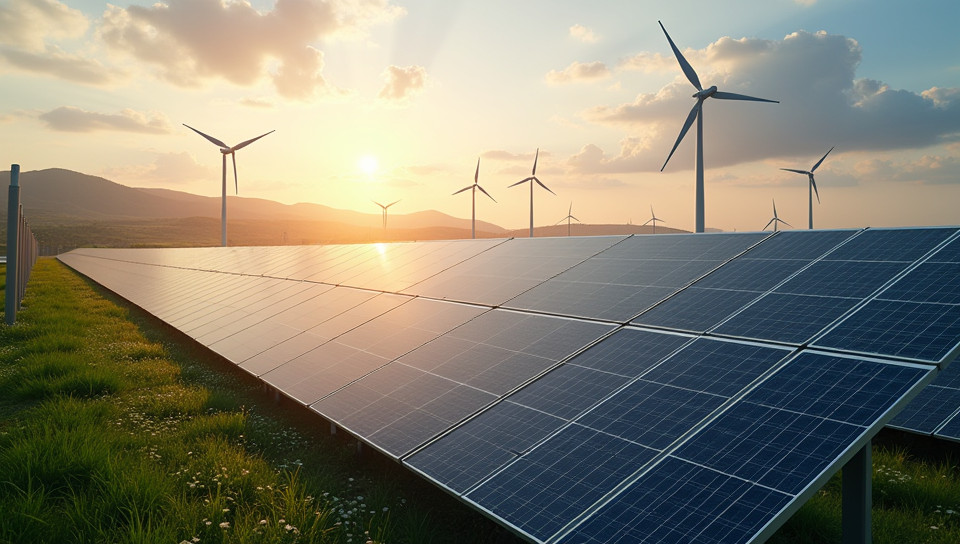Renewable energy is not as cost-effective in the long run 48%

The Dark Side of Renewable Energy: Is it Really Worth the Investment?
As the world continues to grapple with the challenges of climate change, renewable energy has become an increasingly popular solution for reducing our carbon footprint and mitigating the effects of global warming. However, a closer look at the numbers reveals that renewable energy may not be as cost-effective in the long run as we think.
The High Upfront Costs of Renewable Energy
One of the primary reasons why renewable energy is touted as a cost-effective solution is its low operating costs. Solar panels and wind turbines require minimal maintenance and generate electricity with no fuel costs. However, what often gets overlooked are the high upfront costs associated with setting up these systems.
- High installation costs for solar panels and wind turbines
- Expensive land acquisition and leasing fees for large-scale renewable energy projects
- The need for expensive backup power sources to ensure a stable grid during periods of low renewable energy production
The Hidden Costs of Renewable Energy
While the upfront costs of renewable energy are significant, they only tell part of the story. There are also several hidden costs that can add up over time and make renewable energy less cost-effective than we think.
- The need for expensive battery storage systems to store excess energy generated by solar panels or wind turbines
- The high costs associated with grid upgrades and infrastructure expansions to accommodate large-scale renewable energy production
- The potential negative impacts on local ecosystems and wildlife habitats due to the construction of large-scale renewable energy projects
The Reality Check: Is Renewable Energy Really Worth It?
So, is renewable energy really worth the investment? While it's true that renewable energy has made significant strides in recent years, the numbers suggest that it may not be as cost-effective as we think. In fact, a study by the National Bureau of Economic Research found that the costs associated with implementing large-scale renewable energy projects far outweigh any potential benefits.
Conclusion
As we continue to navigate the complex world of energy production and consumption, it's essential to take a closer look at the numbers and not just rely on hype and good intentions. While renewable energy has its place in our transition to a more sustainable future, it may not be as cost-effective as we think. By acknowledging these limitations and exploring other solutions, we can create a more balanced and sustainable approach to meeting our energy needs.
I hope this article helps you make a strong case for your career!
- Created by: Dhruv Kumar
- Created at: Aug. 17, 2024, 11:16 p.m.
- ID: 7641





